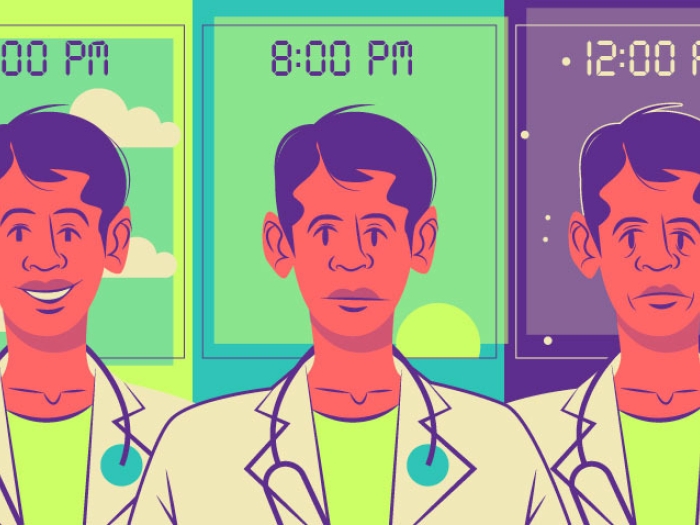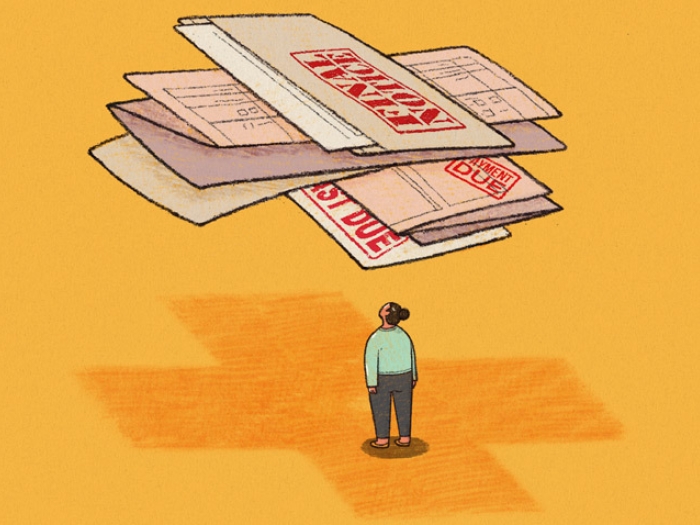Nearly half of adults in their 50s and early 60s aren’t sure they’ll be able to afford health insurance after they retire, and two-thirds worry about the potential effects of health policy changes.
11:00 AM
Author |

Health insurance costs weigh heavily on the minds of many middle-aged adults, and many are worried for what they'll face in retirement or if federal health policies change, according to a new study just published in JAMA Network Open.
More than a quarter of people in their 50s and early 60s lack confidence that they'll be able to afford health insurance in the next year, and the number goes up to nearly half when they look ahead to retirement. Two-thirds are concerned about how potential changes in health insurance policies at the national level could affect them.
Nearly one in five of survey respondents who are working say they've kept a job in the past year in order to keep their employer-sponsored health insurance. And 15% of those who are working say they've delayed retirement, or thought about it, because of their insurance.
The study uses data from the National Poll on Healthy Aging, conducted in late 2018, during the open enrollment period for many employers' insurance plans, and near the start of open enrollment for Medicare and plans available to individuals on federal and state marketplace sites.
MORE FROM THE LAB: Subscribe to our weekly newsletter
"Seeking regular medical care is critically important for adults in their 50s and 60s, to prevent and treat health conditions," says lead author Renuka Tipirneni, M.D., M.Sc. "We found that many adults in this age group are unfortunately worried about affording health insurance and avoiding care because of costs." Tipirneni is an assistant professor of internal medicine at the University of Michigan and a member of the U-M Institute for Healthcare Policy and Innovation, which runs the poll. She sees patients in the General Medicine clinics at Michigan Medicine, U-M's academic medical center.
The poll was conducted at a time when the Affordable Care Act had survived challenges in Congress but was facing possible changes or invalidation in a federal court case. That case is now pending before the Supreme Court.
"It is clear from our poll that health care remains a top issue for middle-aged adults and that many of them find the recent uncertainty surrounding federal healthcare policies troubling," says senior author Aaron Scherer, Ph.D., an associate in internal medicine at the University of Iowa and former postdoctoral fellow at U-M. "Policymakers should work to ensure the stability and affordability of health insurance for vulnerable adults on the verge of retirement."
The worries about cost already affect how people in this pre-Medicare age group use health care, the study finds. More than 18% had avoided seeking care, or had not filled a prescription, because of cost in the past year.
Policymakers should work to ensure the stability and affordability of health insurance for vulnerable adults on the verge of retirement.Renuka Tipirnani, M.D., M.Sc.
Those who were in fair or poor health were four times more likely to have avoided care. Those with an insurance plan purchased on the individual level, such as the federal Marketplace, were three times more likely to have avoided seeking care or filling a prescription.
The poll of 1,024 adults in their pre-Medicare years was conducted sponsored by AARP and Michigan Medicine, U-M's academic medical center.
Like Podcasts? Add the Michigan Medicine News Break to your Alexa-enabled device or subscribe for updates on iTunes, Google Play and Stitcher.
The poll focuses on those approaching the "magic" age of 65, when most Americans qualify for Medicare health insurance. The researchers say their findings hold implications for policy proposals that would offer Medicare availability at younger ages, or offer a publicly-funded plan on the federal Marketplace.
Paper cited: JAMA Network Open. DOI: 10.1001/jamanetworkopen.2019.20647

Explore a variety of healthcare news & stories by visiting the Health Lab home page for more articles.

Department of Communication at Michigan Medicine
Want top health & research news weekly? Sign up for Health Lab’s newsletters today!





